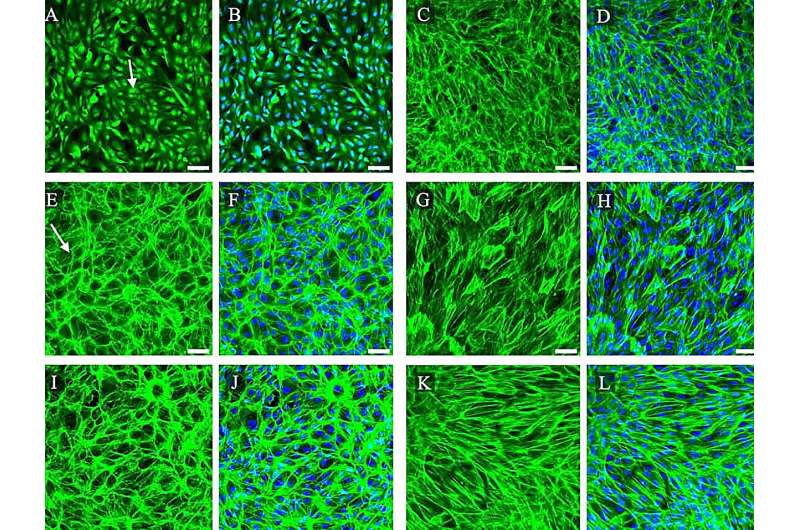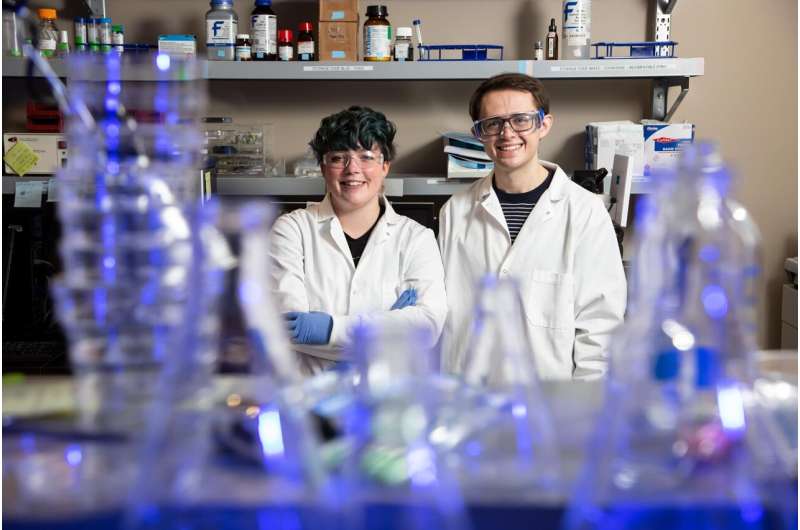From hagfish to membrane: Modeling age-related macular degeneration

Researchers at Utah State University have successfully demonstrated that hagfish slime proteins can accurately replicate membranes in the human eye.
"By using these models, scientists can better understand the role of Bruch's membrane in the development of age-related eye diseases," Vargis said. "This research provides an affordable and widely available option."
Studying the connection between an aging Bruch's membrane and deterioration caused by AMD is challenging in live subjects due to the slow progression of the disease and the complexity of isolating specific layers of the retina. Creating an in vitro model of Bruch's membrane that mimics both its healthy and aged states help researchers understand the relationship between physical changes via aging and AMD. The ideal model should be smooth, nonporous and capable of supporting cell growth. It should also replicate the changes that occur with age in thickness, stiffness and permeability.

Previous models of Bruch's membrane have captured some of its properties but not all. The most common model is a plastic membrane called a Transwell, which supports cell culture in the retina but is much thicker and stiffer than the natural membrane and cannot easily replicate changes from aging. Other models partially represent Bruch's membrane but are difficult to produce and/or lack certain crucial aspects required to study AMD.
In previous work with USU Biology Professor Justin Jones, researchers manipulated spider silk proteins to replicate Bruch's membrane, but challenges in isolating proteins and limited adjustability led to the exploration of other materials. Collaboration with Jones determined that hagfish slime proteins are the best choice for replicating Bruch's membrane while still maintaining desirable properties. Vargis and her team were able to properly grow retinal cells on hagfish slime proteins and prove that the protein's behavior changes as the membrane mimic stages of aging and disease.

